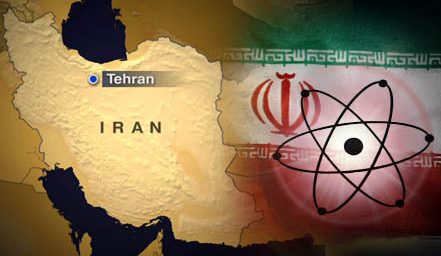BUILDING ON LIBYA
Christopher Hitchens tackles the linkage between our Iraq policy and recent positive events in Libya and Iran.
The hawks are quite plainly right to say that this sudden tribute by vice to virtue is a direct consequence of Operation Iraqi Freedom. So is the new readiness by the mullahs of Iran to accept international inspections. It might even be true to say that the supposed failure to find WMDs in Iraq is a factor in this welcome surrender. I know I am having it both ways here because I actually believe that Saddam Hussein was concealing illegal weapons and was trying to buy them off the shelf from Kim Jong-il, but look at it from the point of view of a rattled and ramshackle despotism like the Libyan or Iranian one. (Wow—look what happened to Saddam when he was accused of fooling around with weapons and inspections and U.N. resolutions. And we know that we do have undeclared stocks. Is it worth the risk?) One can only be impressed at this triumph of reasoning over ideology. If riff-raff like this can be so convinced of our resolve, then we really must make sure that our resolve is as steely as they think it is.
One can always count on Hitch for a novel take!
There’s certainly an element of time-buying and calculation in both cases, but the compromise over WMD can, if properly handled, act as a curtain-raiser for regime change in both societies. Iranians and Libyans are not fools, and they have increasing access to non-state media. They know that their boastful and pious leaders have been cringing and conceding. In a more than subliminal way, this presages the end of governments that are bankrupt in other ways as well. In the Middle East perhaps more than in any other region at present, people are acutely sensitive to which is the winning and which is the losing side. The mullahs have run Iran into the ground over two decades, and Qaddafi has been in power since I was an undergraduate. Their rule is condemned by actuarial calculations as well as by moral and political ones, and it’s now quite possible to envisage a future without them. The tipping point in all this is, and has been, and will be seen to have been, the liberation of Iraq.
There are two things that the Bush administration could do to push this process along. It’s become obvious that Pakistan has been involved not only in pirating nukes of its own, but in helping to proliferate them via North Korea and elsewhere. . . . The greatest act of public diplomacy that the Bush team could now perform would be a high-level initiative to detoxify and denuclearize the Kashmir question. This is a far more dangerous and urgent question than Palestine. (Indeed, al-Qaida probably originates more from the Kashmiri swamp than it does from the Middle Eastern one.)
I believe this is correct all around. One would hope we’re already putting some pressure on Musharraf behind the scenes.
Then it would be nice if Gen. Ariel Sharon was asked to declare his own stocks of nuclear weapons and was questioned rather closely about what contribution they make to regional security. For a start, where was Israel thinking of using such devices and under what circumstances? In the war against jihad, Israeli nuclear weapons are even more useless than our own. Precision-guided munitions, which take out the tyrant and spare the population, are the wave of the future.
I’m less sure of this one. Given Israel’s precarious situation–it is, after all, literally surrounded by its enemies–having a nuclear deterrent gives them some comfort. And they have shown that they can be trusted not to use it at the drop of a hat. I’m not sure what it is that others could concede that would be worth trading in this security blanket.
Not to end on too festive or seasonal a note, but the disarming of three rogue regimes in under one year isn’t bad. If Howard Dean really believes that we are no safer than we were on Sept. 11 (and I presume he can’t literally mean that the removal of the Taliban made no difference), then it’s time he said what he would have done differently.
Quite so.



